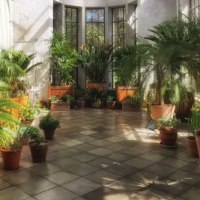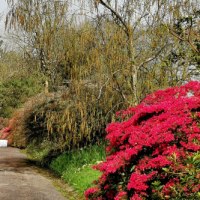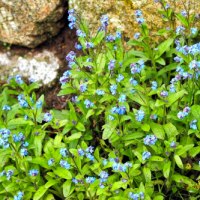Today we drove home and once again on this journey from London to Cornwall through the English countryside, I was struck by the electricity pylons “striding” across the fields and reminded of this poem by Stanley Snaith in 1933 when these things were new in the landscape.
- Over the tree’d upland evenly striding,
- One after one they lift their serious shapes
- That ring with light. The statement of their steel
- Contradicts nature’s softer architecture.
- Earth will not accept them as it accepts
- A wall, a plough, a church so coloured of earth
- It might be some experiment of the soil’s.
- Yet are they outposts of the trekking future.
- Into the thatch-hung consciousness of hamlets
- They blaze new thoughts, new habits.
- Traditions
- Are being trod down like flowers dropped by children.
- Already that farm boy striding and throwing seed
- In the shoulder-hinged half-circle Millet knew,
- Looks grey with antiquity as his dead forbears,
- A half familiar figure out of the Georgics,
- Unheeded by these new-world, rational towers.
Stanley Snaith, “Pylons,” in The Silver Scythe (London: Blythenhale Press, 1933)
Driving West we are often lucky enough to catch a lovely sunset.
Everyone coming home to Cornwall along the A30 knows that they are almost home when they see this copse at Cookworthy Knapp, a few miles before the Cornish border.
My photos were all taken with my phone today, from the moving car.























Heyjude
December 15, 2017 at 11:34 pm
I love that copse. Every time I drive past I promise myself that next time I must stop and take a photo.
mybeautfulthings
December 16, 2017 at 8:17 pm
We have two drivers so I always make sure that I am not driving at the moment we pass our copse! 🙂